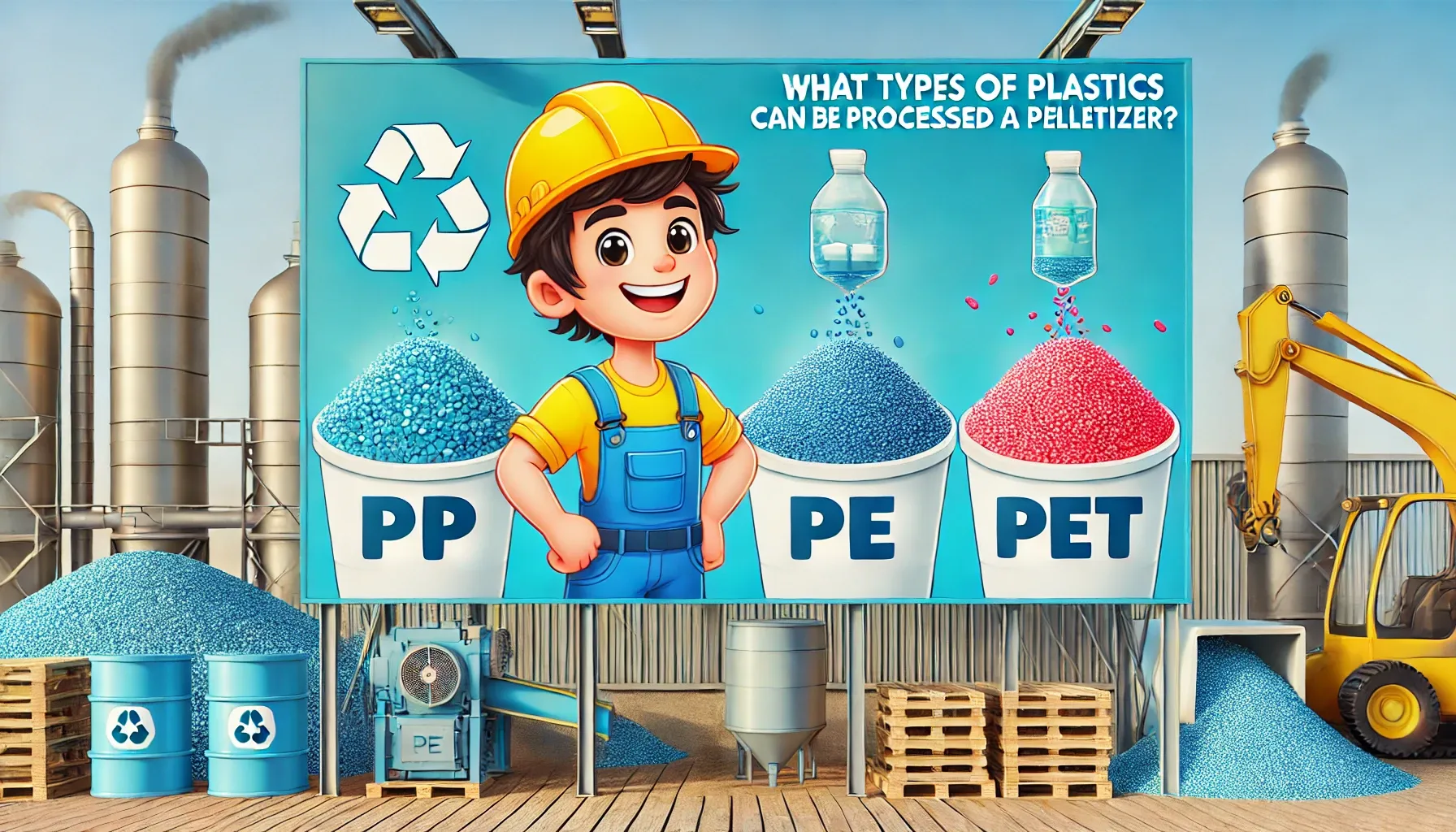Plastic pelletizers are incredibly versatile machines used in the recycling and manufacturing industries to process various types of plastics. These machines convert plastic waste into small, uniform pellets that can be easily reused in new products. Below, we’ll explore the most common types of plastics that can be effectively processed using a pelletizer.
Contents
Types of Plastics Suitable for Pelletizer Processing
1. Polyethylene (PE)
Polyethylene, which includes both high-density polyethylene (HDPE) and low-density polyethylene (LDPE), is one of the most widely used plastics in the world. It’s commonly found in products like plastic bags, bottles, and containers. Polyethylene can be efficiently processed with a pelletizer, making it a popular choice for recycling. Adjusting the pelletizer settings to account for the specific density and characteristics of the PE material ensures optimal pellet quality.
- High-Density Polyethylene (HDPE): Used in milk jugs, detergent bottles, and toys
- Low-Density Polyethylene (LDPE): Found in plastic bags, squeeze bottles, and packaging films
- Linear Low-Density Polyethylene (LLDPE): Commonly used in stretch wrap and agricultural films
2. Polypropylene (PP)
Polypropylene is another common plastic processed by pelletizers. Found in items like food containers, automotive parts, and textiles, PP is valued for its durability and resistance to various chemicals. When processing PP, it’s crucial to adjust the pelletizer to accommodate its higher melting point compared to polyethylene. Proper configuration ensures the plastic is evenly melted and formed into high-quality pellets.
- Food containers
- Automotive parts
- Household appliances
- Packaging materials
3. Polystyrene (PS)
Polystyrene is used in products such as disposable cutlery, foam packaging, and insulation materials. It can be challenging to recycle due to its brittle nature, but a pelletizer with the right settings can effectively process PS. The key is to manage the temperature and pressure within the pelletizer to prevent the material from becoming too brittle or degraded during processing.
- Disposable cutlery
- Packaging materials
- Insulation
- Electronics housings
4. Polyvinyl Chloride (PVC)
Polyvinyl Chloride, commonly known as PVC, is used in pipes, window frames, and vinyl flooring. Processing PVC with a pelletizer requires careful control of the machine’s temperature settings, as PVC can release harmful gases if overheated. Using the correct settings and configurations is essential to safely and efficiently process PVC into pellets.
- Construction materials (pipes, window frames)
- Electrical cable insulation
- Flooring
- Medical devices
5. Other Processable Plastics
While PE, PP, PS, and PVC are the most common, pelletizers can also handle other types of plastics, including:
- Acrylonitrile Butadiene Styrene (ABS)
- Polyethylene Terephthalate (PET)
- Thermoplastic Elastomers (TPE)
- Nylon
Optimizing the Pelletization Process
It’s important to note that each type of plastic may require specific machine settings to achieve optimal results. Factors such as temperature, screw speed, and cooling rate can significantly impact the quality of the final pellets. Always consult the pelletizer manufacturer’s guidelines and conduct test runs to determine the best configuration for your specific material.
Conclusion
Pelletizers can handle a wide range of plastic types, from polyethylene and polypropylene to polystyrene and polyvinyl chloride. However, each type of plastic requires specific machine settings to ensure the best results. Always refer to the manufacturer’s guidelines to optimize the pelletization process for the specific type of plastic you are working with.



